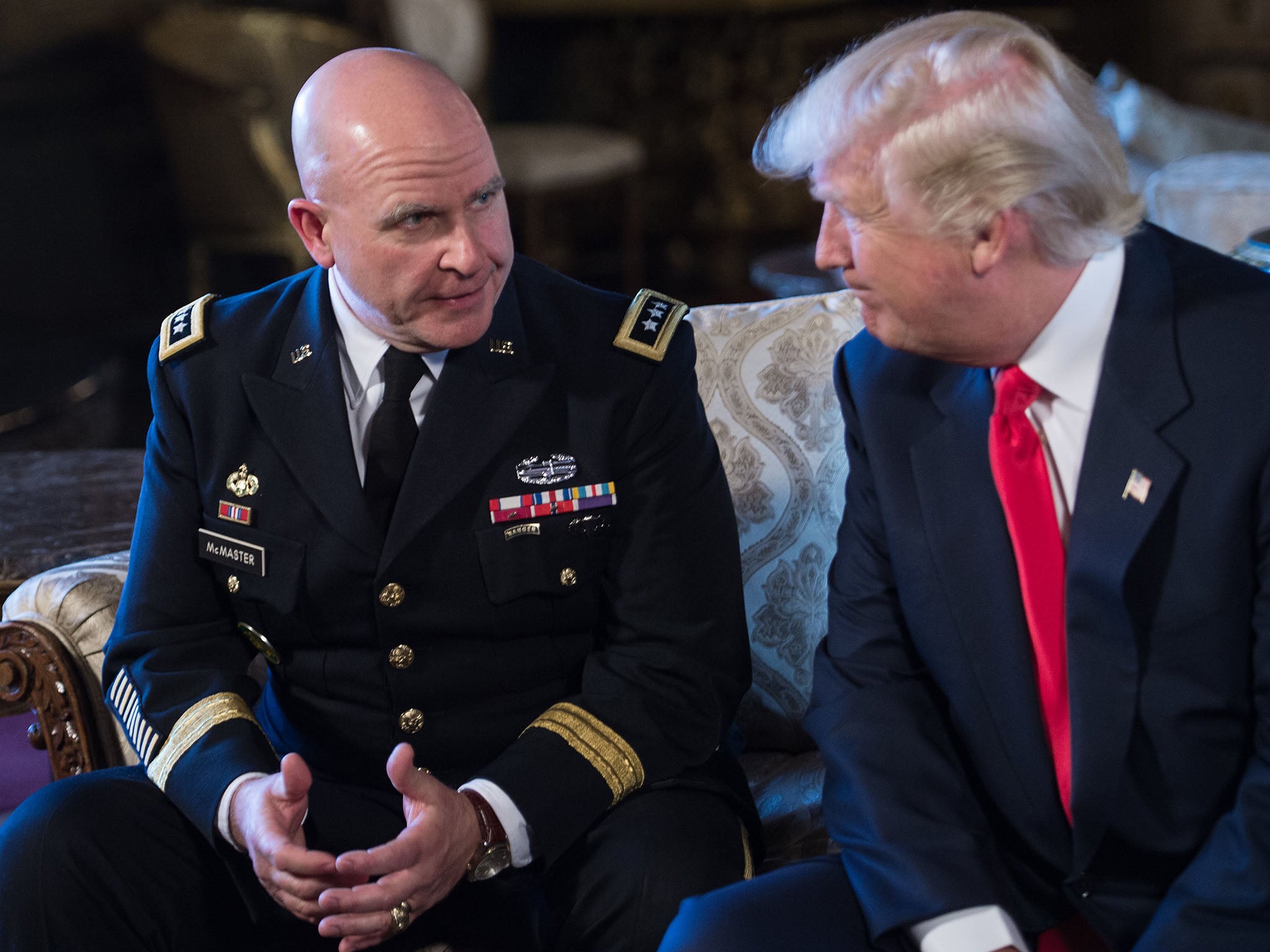Donald Trump and his new national security advisor look set to clash on radical Islam
Lt. Gen. H. R. McMaster labelled radical Islamic terrorists as “un-Islamic”

Your support helps us to tell the story
From reproductive rights to climate change to Big Tech, The Independent is on the ground when the story is developing. Whether it's investigating the financials of Elon Musk's pro-Trump PAC or producing our latest documentary, 'The A Word', which shines a light on the American women fighting for reproductive rights, we know how important it is to parse out the facts from the messaging.
At such a critical moment in US history, we need reporters on the ground. Your donation allows us to keep sending journalists to speak to both sides of the story.
The Independent is trusted by Americans across the entire political spectrum. And unlike many other quality news outlets, we choose not to lock Americans out of our reporting and analysis with paywalls. We believe quality journalism should be available to everyone, paid for by those who can afford it.
Your support makes all the difference.Donald Trump’s new national security advisor has signalled a fresh stance on radical Islam at odds with the president and other key advisors.
The newly appointed adviser, Lt. Gen. H. R. McMaster, indicated he will pursue a more moderate approach towards Islamic terrorism.
In a meeting with National Security staff he said that Muslims who commit acts of terror are in fact contradicting their religion rather than pursuing a hard-line version of it.
The three-star army general reportedly said the label of “radical Islamic terrorism” was not helpful as the perpetrators were “un-Islamic”.
His stance signals a break from the rhetoric Mr Trump and Gen McMaster’s predecessor, Michael Flynn, espouse about so-called Islamic fundamentalists.
Mr Flynn resigned last week after admitting he misled vice-president Mike Pence and other officials about his dealings with Russia in the run-up to the November election.
Following the shock vacancy, Gen McMaster was appointed by Mr Trump after his first pick, Robert S. Harward, a retired Navy vice admiral, declined.
Described by the Commander-in-Chief as “a man of tremendous talent, tremendous experience”, the New York Times (NYT) reported the Iraq war veteran spent his first few days in office introducing himself to staff, who have endured months of turbulent upheaval following the rocky transition and the snap exit of Mr Flynn.
Gen McMaster’s stance echoes that of former presidents Barack Obama and George W. Bush, who sought to separate terrorism from Islam.
William McCants, a senior fellow at the Brookings Institution, said: “This is very much a repudiation of his new boss’s lexicon and worldview.
“McMaster, like Obama, is someone who was in positions of leadership and thought the United States should not play into the jihadist propaganda that this is a religious war,” the NYT reported.
Despite his more moderate approach, questions remains how far his influence will go in the White House when pitted against the deeply entrenched ideological views of the president and other key figures.
And since Mr Trump’s inauguration mixed messages over key policies have left experts and officials baffled.
One area where there appears to be confusion is the US’s support for NATO and the European Union (EU), with Mr Pence recently travelling to Brussels to reaffirm the superpower’s support for the organisation.
He delivered a speech saying there is: “Strong commitment of the United States to the continued cooperation and partnership with the European Union.”
But days later German ambassador to the United States, Peter Wittig, seemingly contradicted that by claiming the White House remained concerned over the EU as a whole, painting it as a fractured and failing bloc rather than a bulwark of economic stability and peace.
In a meeting between the Mr Whiting and chief strategist, Stephen K. Bannon, before the trip, Mr Bannon is reported to have said the White House views the EU as a “flawed construct”, and one-on-one negotiations with European nations was preferred.
Join our commenting forum
Join thought-provoking conversations, follow other Independent readers and see their replies
Comments